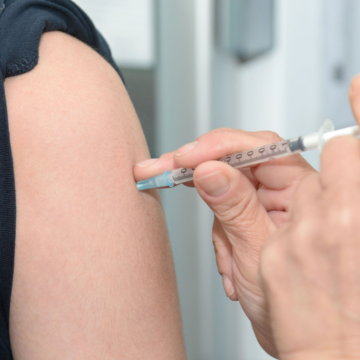As prevalent as COVID-19 has felt during the pandemic, we can sometimes forget that our understanding of how it affects us is still developing. As we learn how the virus spreads, our testing strategies will also need to evolve to make sure we’re protecting those at risk and easing the strain on our healthcare systems.
New studies show that contracting COVID-19 without experiencing symptoms, or being “asymptomatic,” is more probable than we currently realize. A recent peer-reviewed report from the United Kingdom’s United College London found that 86% of those tested positive for COVID-19 didn’t display any of the core symptoms: cough, fever, or loss of taste and smell. 76% didn’t have any symptoms at all. Earlier this year, researchers in Iceland came to a similar conclusion in their study when 50% of people who contracted COVID-19 didn’t notice any symptoms.
In their conclusion to the UK study, researchers Irene Petersen and Andrew Philips pointed out that “to reduce transmission of SARS-CoV-2, it is important to identify those who are infectious. However, little is known about what proportion of infectious people are asymptomatic, and potential ‘silent transmitters’… a more widespread testing programme is necessary to capture ‘silent’ transmission and potentially prevent and reduce future outbreaks.”
While on the surface, this could make contracting COVID-19 seem less uncomfortable for those who contract it, it makes a much more serious problem even worse: Those who are infected but don’t know it are much more likely to spread the virus, potentially to vulnerable and high-risk people whose experience would be more critical.
The importance of asymptomatic COVID-19 testing
With more accessible and widespread asymptomatic testing, we can:
1. Identify more of the infected
One of the key reasons COVID-19 spreads so easily is that people become contagious before experiencing any symptoms. Or, as growing research shows, may not exhibit any symptoms at all.
Knowing if an individual is positive for COVID-19, whether they’re symptomatic or not, is crucial to making sure people are aware of their diagnosis, properly quarantine, and seek care if their condition gets worse. Without following physical distancing and hygiene guidelines, asymptomatic COVID-19 carriers are far more likely to infect those around them unknowingly.
2. Enable better contact tracing
The next step after knowing someone has tested positive is knowing everyone that they’ve interacted with. If an asymptomatic person tests positive, they can work with public health officials to alert everyone they had close contact with since they’ve been infectious. This is particularly important for those in regular contact with high-risk people, like those who work in long-term care facilities.
3. Help inform research and government action
Knowledge is power. The more we know about how people experience COVID-19, the more accurately we can assist with medical research and make sure government policies are based on testing and data. Each time we test, not only does the individual get the diagnosis they need for themselves, but we gather more information to help us create policies and a better understanding of how, as a society, we need to behave to help protect those who are most vulnerable.
Where to get asymptomatic COVID-19 testing
In the United States, stay up to date on the latest testing recommendations from the Centers for Disease Control and Prevention or get custom advice by chatting real-time with your Care Team in the League app.
For Canadians living in Ontario and Alberta, you can now access asymptomatic testing at select Shoppers Drug Mart locations as long as you meet one of their criteria:
- Residents or workers in a long-term care home
- Visitors to a long-term care home
- Residents or workers in a homeless shelter
- International students that have passed their 14-day quarantine period
- Farmworkers
- Individuals who require a COVID-19 test for international travel clearance
- Self-Identified Indigenous
- Resident or worker in other congregate living settings and institutions
Canadians living outside of Ontario and Alberta can talk to our expert Care Team to chat one-on-one with a registered nurse for testing advice and to a care navigator for recommendations for providers in their area.






